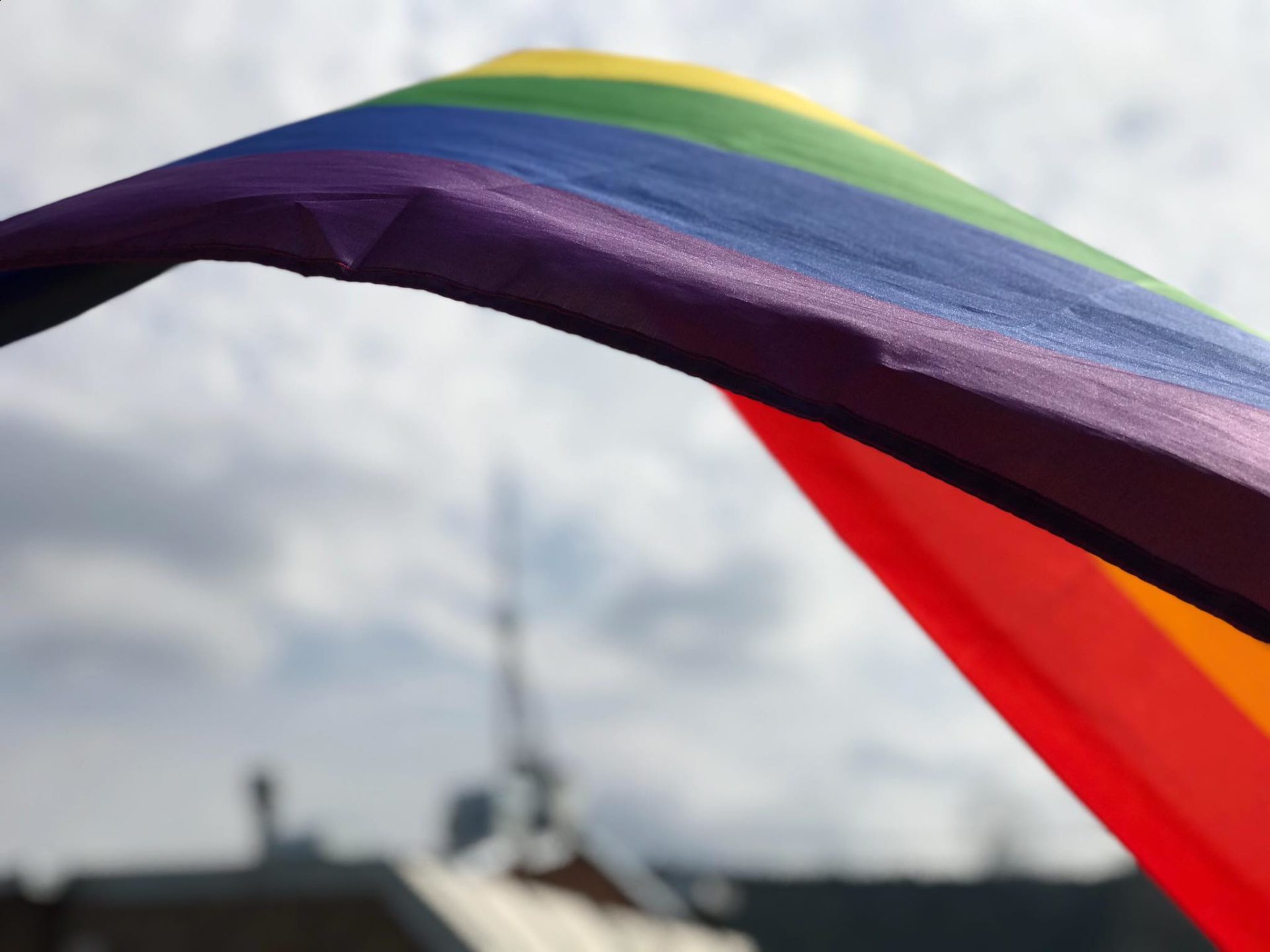On 8 July, a violent mob broke into the private venue where the Tbilisi Pride festival was to be held. During the ensuing violence, attackers vandalized the venue stage, set fire to LGBT+ flags and festival banners, looted materials, and damaged property and equipment. However, this attack did not spontaneously erupt. It began as a far-right rally near the venue and comes within the context of heightened homophobic rhetoric by the ruling Georgia Dream party, calls by the Georgian Orthodox Church calling for “queer propaganda law”, and statements by far-right groups rejecting the rights and freedoms of LGBT+ groups and their supporters, and human rights defenders.
The violent attack perpetrated against the Tbilisi Pride festival organizers, supporters, and participants appears to have been organized and orchestrated by Alt Info, a far-right group with a homophobic agenda. Due to threats of violence and recent history of attacks against Tbilisi Pride, in the days leading up to the Tbilisi Pride festival and subsequent violent attack, the Georgian Interior Ministry had pledged greater security. However, videos and photographs taken during the attack appear to show law enforcement officers allowing far-right rally participants to enter the Pride festival venue unimpeded or, in some cases, with the help of law enforcement officers themselves. Ultimately, Pride Festival participants were evacuated from the venue by police and two members of the far-right were administratively detained by the police.
Over the years, the Georgian authorities have failed to live up to their international commitments and adequately protect the LGBT+ community and their supporters and defenders in the exercise of their human rights. We have seen homophobic assaults on people celebrating international Day against Homophobia, transphobia and biphobia (IDAHOT in 2012 and violent attacks on mass scale on May 17, 2013. In 2015, the European Court of Human Rights held that the police’s failure to protect those participating in the IDAHOT march amounted to violations of freedom of assembly and prohibition against ill-treatment and were discriminatory in nature. In 2019 the first pride march was almost forced to shut down due to the activities of violent groups in Georgia. In 2019 the first Pride March was almost forced to shut down due to the activities of violent groups in Georgia, organizers held an impromptu march which lasted 30 minutes due to the threat of far-right groups. In 2021 pride-march was cancelled again after violent homophobic protests broke out in the city center, 50+ journalists and media workers have been attacked and physically injured. Cameramen Lekso Lashkarava died few days after he was seriously injured from the side of violent groups, the exact reason of his death is still not investigated. At the same time, Tbilisi Pride office, Shame movement office and Human Rights House Tbilisi offices have been attacked by violent groups.
We welcome the statement made by the President of Georgia following the attack in which she stated, “people were not given the opportunity to hold their own event in a closed space that was planned in advance, agreed upon with law enforcement officers, which the law enforcement agencies had promised the protect.” But this is not enough. The Georgian government has an obligation to protect, without discrimination on the basis of sexual orientation and gender identity, the universal and fundamental rights of all people in Georgia. These rights include the freedoms of assembly and expression.
Therefore, we urge the Georgian authorities to:
-
Ensure a full and complete investigation into the attacks on 8 July which seeks to hold those responsible accountable;
-
Publicly condemn the activities of homophobic far-right groups and hold accountable those responsible for organizing rallies which result in violence and hate speech;
-
Demonstrate on-going and support to LGBT+ groups, human rights defenders and activists.
-
Ensure that LGBT+ groups their defenders and supporters enjoy unhindered freedom of assembly and expression, and those who restrict these freedoms are held accountable.
Signed by:
- Human Rights House Tbilisi, Georgia
- Rights Gerogia
- GCRT, Georgia
- Human Rights Centre, Georgia
- Media Institute, Georgia
- Sapari, Georgia
- Araminta, Germany
- Artist Protection Fund, United States
- Austausch – For a European Civil Society e.V., Germany
- B.a.B.e., Croatia
- Barys Zvozskau Belarusian Human Rights House, Belarus/Lithuania
- Belarusian Helsinki Committee, Belarus
- Center for Civil Liberties, Ukraine
- Center for Participation and Development, Georgia
- Centre for Peace Studies, Croatia
- Citizens Watch, Russia,
- Civic Initiatives, Serbia
- Collective Campaign for Peace (COCAP), Nepal
- Crude Accountability, United States
- Democracy Today, Armenia
- Departamento Ecuménico de Investigaciones, Costa Rica
- Educational Human Rights House Chernihiv, Ukraine
- Helsinki Committee for Human Rights in Serbia
- HRM “Bir Duino-Kyrgyzstan”
- Human Rights Center “Viasna”, Belarus
- Human Rights Centre ZMINA, Ukraine
- Human Rights House Crimea, Ukraine
- Human Rights House Foundation, Norway
- Human Rights House Yerevan, Armenia
- Human Rights House Zagreb, Croatia
- Index on Censorship, United Kingdom
- Institute for Reporters’ Freedom and Safety, Azerbaijan
- International Service for Human Rights (ISHR), Switzerland
- Legal Education Society, Azerbaijan
- Legal Initiative, Belarus
- Mental Health and Human Rights Info, Norway
- Netherlands Helsinki Committee
- Norwegian Helsinki Committee
- Pink human rights defender NGO, Armenia
- Swedish OSCE-network
- Ukrainian Helsinki Human Rights Union
Top photo: Pride flag in Tbilisi, Georgia. Courtesy of Tamta Chkhaidze / Human Rights House Tbilisi.





